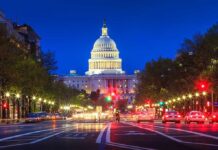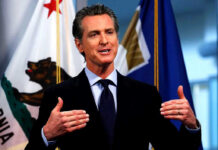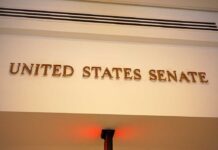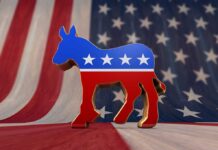
Amidst escalating political tensions, stay-at-home moms find themselves at the center of a fierce debate where they are being labeled as “fascists” for their active roles in educational policy battles.
Story Highlights
- Stay-at-home moms involved in school board activism are being branded as “fascists” by critics.
- Groups like Moms for Liberty are pushing for changes in school curricula and book bans.
- The rhetoric highlights the deepening polarization in U.S. politics.
- There are ongoing protests and counter-protests surrounding these issues.
The Rise of Parental Activism
In recent years, parental activism, particularly among stay-at-home mothers, has surged, igniting significant controversy. Groups like Moms for Liberty have become key players in school board elections, advocating for curriculum changes and the removal of certain books they deem inappropriate. This movement gained momentum post-pandemic as parents became more involved in their children’s education, leading to increased scrutiny of school policies. However, critics argue that their actions are authoritarian and harmful to diversity and inclusion.Public discourse has grown increasingly polarized, with progressive activists branding these groups as “fascists.” This label, while provocative, underscores the intensity of the cultural clash over educational content, particularly regarding the inclusion of LGBTQ+ topics and critical race theory. As these debates play out in school board meetings across the nation, both sides accuse each other of undermining democratic values and minority rights.
Historical Context and Developments
The roots of this controversy can be traced back to longstanding debates over parental rights and educational control in America. Historically, movements like the Moral Majority in the 1980s have sought to influence educational content. More recently, the COVID-19 pandemic catalyzed parental involvement, leading to the rise of groups focused on parental rights and curriculum changes. Accusations of “fascism” reflect broader fears of authoritarianism and are part of a wider discourse on political extremism.
Protests in cities like Philadelphia have highlighted the contentious nature of these debates. Activists from both sides have mobilized, with progressive groups warning against what they see as an erosion of minority protections. Meanwhile, parental rights advocates argue for their right to influence educational content, framing their actions as an extension of democratic participation.
Key Players and Motivations
The main stakeholders in this debate include organizations like Moms for Liberty, progressive activist groups, and local school boards. Moms for Liberty is driven by a desire to increase parental control over educational content, opposing what they consider indoctrination through critical race theory and LGBTQ+ inclusion. On the other hand, progressive activists argue that these efforts undermine minority rights and academic freedom, viewing them as a form of censorship.
Local school boards find themselves at the center of this conflict, balancing demands from both sides while trying to maintain educational standards. Political figures, such as Florida Governor Ron DeSantis, play a significant role in shaping the narrative, often supporting parental rights groups and influencing policy decisions. The media also plays a crucial role in amplifying these debates, affecting public perception and policy outcomes.
Implications and Future Directions
The ongoing debate has significant short-term and long-term implications. In the short term, it is likely to increase polarization at the local level, disrupt school board operations, and attract national media attention. Long-term effects may include shifts in education policy, a decline in trust in public institutions, and the normalization of extreme rhetoric in political discourse.
Educational institutions, students, particularly those from LGBTQ+ and minority communities, and educators are among those most affected. The education sector faces potential instability, with implications for curriculum development and teacher retention. Politically, education policy has become a central issue in elections, reflecting broader debates about democracy and rights.

































